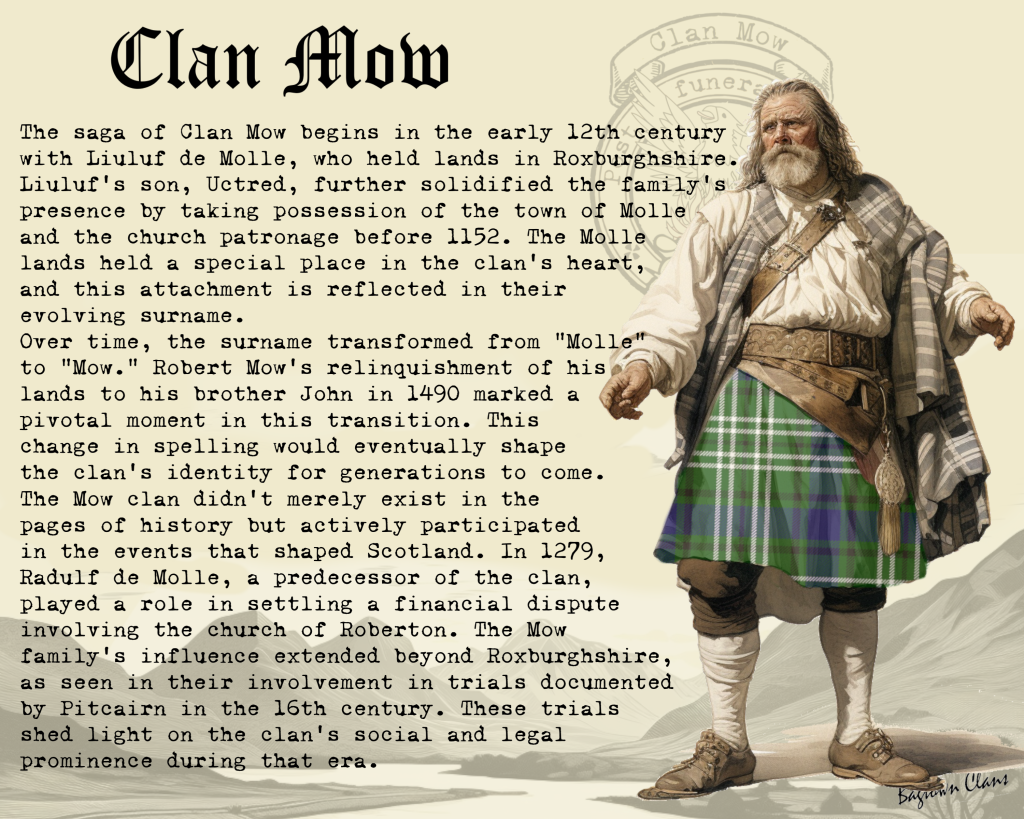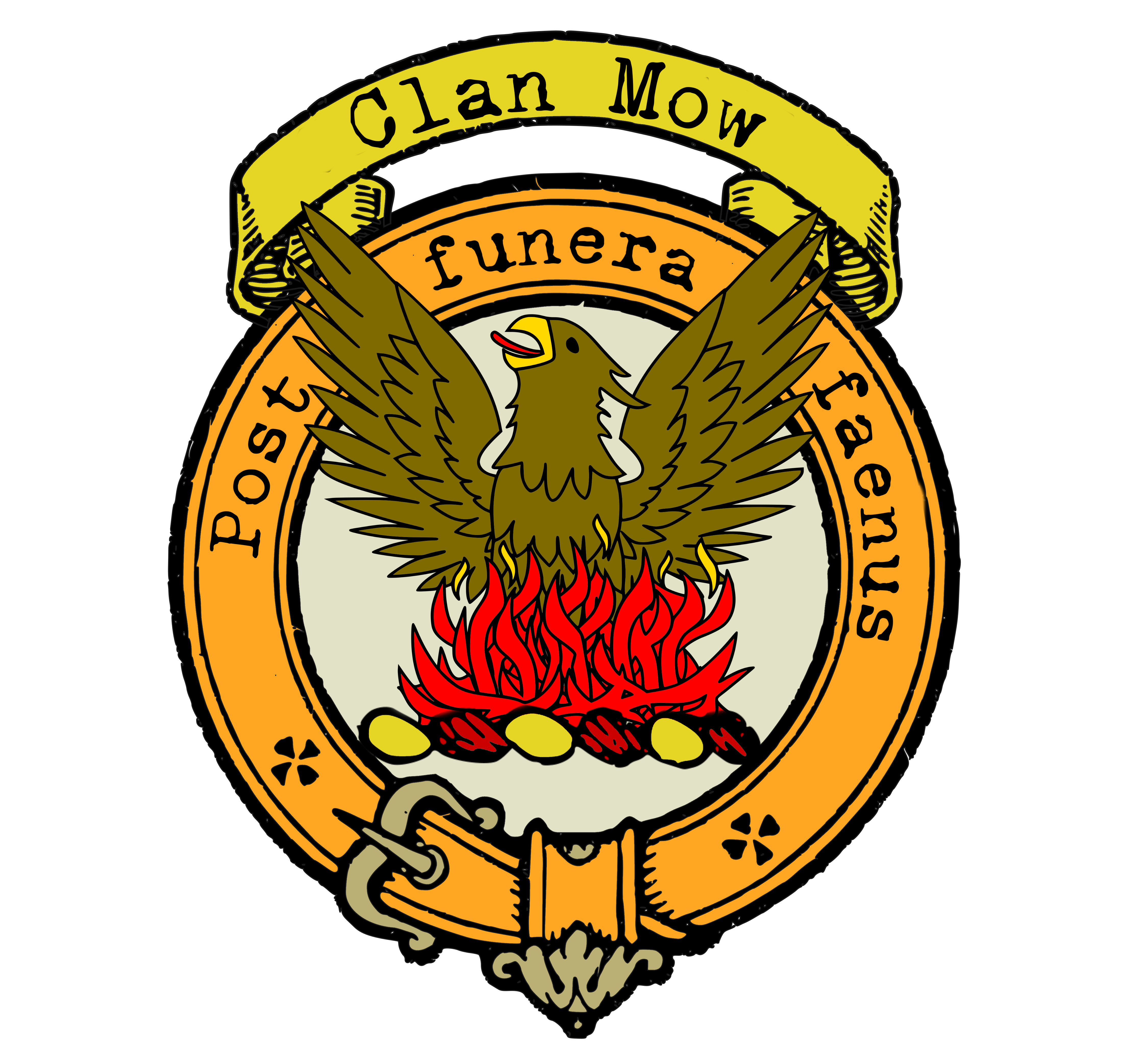Clan Mow Crest
|
|
CREST: A phoenix rising out of the flames Proper MOTTO: Post funera faenus TRANSLATION: An interest after death VARIATIONS: N/A |
| The saga of Clan Mow begins in the early 12th century with Liuluf de Molle, who held lands in Roxburghshire. Liuluf’s son, Uctred, further solidified the family’s presence by taking possession of the town of Molle and the church patronage before 1152. The Molle lands held a special place in the clan’s heart, and this attachment is reflected in their evolving surname.
Over time, the surname transformed from “Molle” to “Mow.” Robert Mow’s relinquishment of his lands to his brother John in 1490 marked a pivotal moment in this transition. This change in spelling would eventually shape the clan’s identity for generations to come. The Mow clan didn’t merely exist in the pages of history but actively participated in the events that shaped Scotland. In 1279, Radulf de Molle, a predecessor of the clan, played a role in settling a financial dispute involving the church of Roberton. The Mow family’s influence extended beyond Roxburghshire, as seen in their involvement in trials documented by Pitcairn in the 16th century. These trials shed light on the clan’s social and legal prominence during that era. The battlefield was not unfamiliar to the Clan Mow, either. In 1575, the Liard of Mow met his fate at the Battle of Redesweire, underscoring the clan’s commitment to defending their values and interests. The name “Mow” found its way northward to Elgin, where John Mow left his mark as a master of singing and a respected burgess. This geographic expansion highlighted the clan’s adaptability and ability to thrive in different regions of Scotland. In 1789, John Mow of Mains and his brother William Mow, who held the distinguished title of Writer to the Signet, sought to honor their ancestry by reviving the ancient form of their name. They applied to the court to change their surname from “Mow” back to “Molle,” thereby paying homage to the roots that had sustained their family for generations. |
|
Citations:
|
|

Purchase @ Redbubble
Purchase @ Amazon.com
Purchase @ Amazon.co.uk

